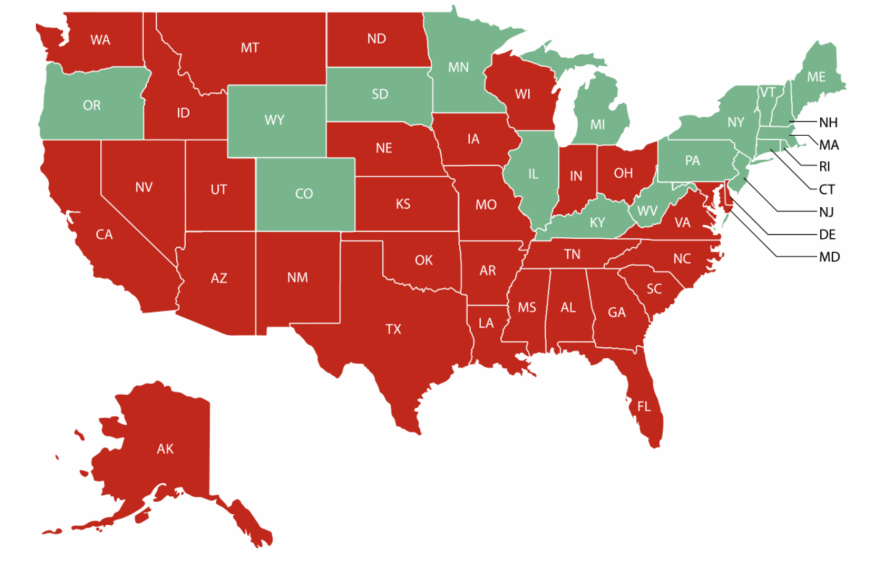People traveling to New York, New Jersey and Connecticut from 31 other states are now required to self-quarantine for 14 days, after 10 states with significant community spread of the coronavirus — including Virginia, Maryland, Indiana and Alaska — were added to a travel advisory Tuesday.
"As infection rates increase in 41 other states, our numbers continue to steadily decline, thanks to the hard work of New Yorkers" and a cautious approach to reopening, New York Gov. Andrew Cuomo said.
"Yesterday, we had our lowest death toll since the pandemic began — and with no fatalities in New York City," Cuomo added, after his state reported just two deaths from COVID-19.
New York, New Jersey and Connecticut first announced their travel advisory on June 24, as they sought to limit potential sources of coronavirus infection. At the time, New York was emerging from its status as the epicenter of the COVID-19 outbreak in the U.S.
As of last week, 22 states were on the list of those requiring quarantines, but the advisory now covers well over half the country. Delaware, which was removed last week, is now back on the list. The state effectively swapped places with Minnesota, which has dropped off.
The mandatory quarantine applies to anyone arriving from states with a positivity test rate of 10% or higher over a seven-day rolling average. It also includes any state where the positive test rate is higher than 10 per 100,000 residents over a seven-day rolling average. In New York state, the rules carry a potential $2,000 fine.
The initial travel advisory list included just nine hot spot states, such as Texas and Florida. But it has swelled as many states endure a sharp spike in coronavirus cases driven by economic reopenings and relaxed attitudes toward face masks and other precautions.
Earlier this month, Florida surpassed New York's worst-ever day for new cases, reporting more than 15,200 infections. On Monday, New York saw less than 2% of its COVID-19 tests come back positive. By contrast, Florida's positivity rate has averaged above 10% for the past month.
"I never thought it would be this bad," Cuomo told NBC's TODAY Show about the course of COVID-19 in the U.S.
Last week, New York stepped up its efforts to hold people accountable to the quarantine rules, deploying "enforcement teams" at airports across the state and urging people to fill out a traveler health form.
When Cuomo was asked on Tuesday whether his state's quarantine policy is enforceable, the governor replied, "It is imperfect."
The tristate area's new travel advisory now covers these states:
Alaska, Alabama, Arkansas, Arizona, California, Delaware, Florida, Georgia, Iowa, Idaho, Indiana, Kansas, Louisiana, Maryland, Missouri, Mississippi, Montana, North Carolina, North Dakota, Nebraska, New Mexico, Nevada, Ohio, Oklahoma, South Carolina, Tennessee, Texas, Utah, Virginia, Washington and Wisconsin.
Copyright 2020 NPR. To see more, visit https://www.npr.org. 9(MDAyNDY5ODMwMDEyMjg3NjMzMTE1ZjE2MA001))



